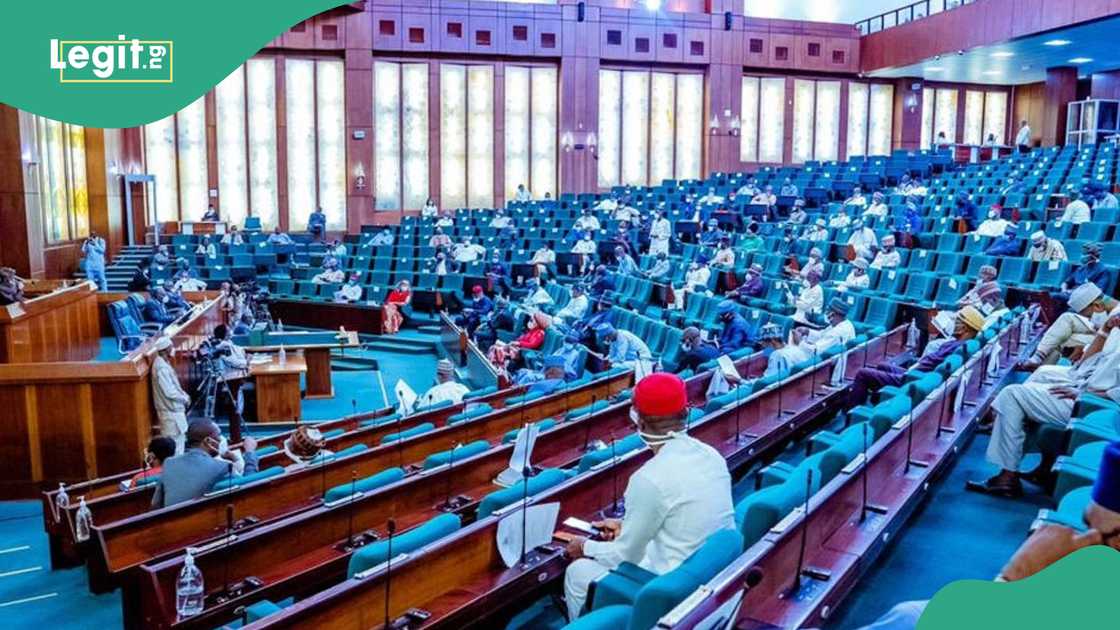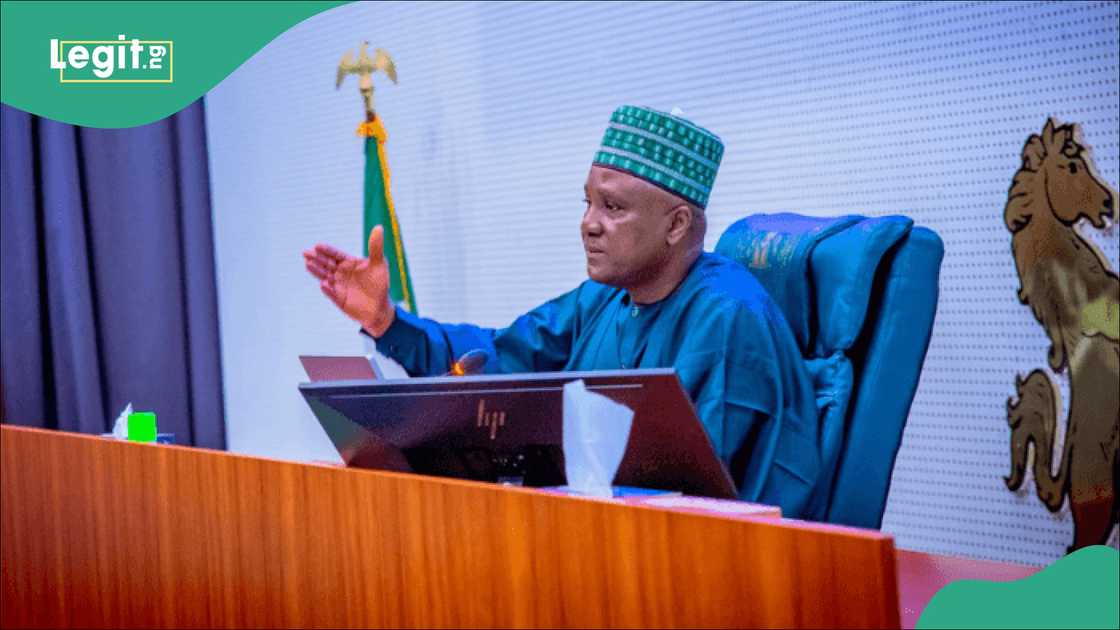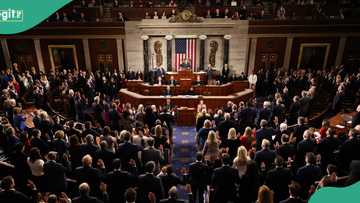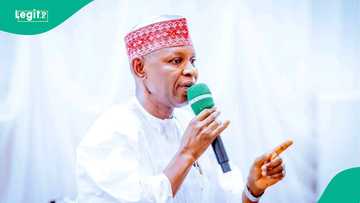Bill Seeking to Reduce Eligibility Age for Senate and Governorship Passes Second Reading
- The House of Representatives has passed a bill for second reading to reduce the minimum age for governors and senators from 35 to 30 years
- Bill sponsor Esin Etim said the current age limit blocked young lawmakers who completed two terms in the House from progressing to higher offices
- Speaker Tajudeen Abbas conducted a voice vote that secured majority support, sending the proposal to the Constitution Review Committee
The House of Representatives has taken another step toward expanding opportunities for young Nigerians in political leadership after passing for second reading a bill seeking to lower the eligibility age for governors and senators from 35 to 30 years.
The proposal aims to amend specific sections of the 1999 Constitution to allow younger candidates to contest for higher offices.

Source: Getty Images
The bill titled A Bill for an Act to Alter the Constitution of the Federal Republic of Nigeria, 1999 (as amended) to Reduce the Age for Qualification for Membership of the Senate and Office of the Governor and for Related Matters was sponsored by Esin Etim alongside twenty-four other lawmakers, The Cable reported.
Bill seeks wider access for youths
Current law permits individuals aged 25 to run for seats in the House of Representatives while the threshold for the Senate and governorship remains 35.
Etim told lawmakers that the age barrier slows the political growth of young legislators who begin their careers early and cannot advance despite years of parliamentary experience.
He explained that many representatives who enter the House at age 25 and complete two terms would be 33 but still barred from seeking higher offices. He said the new proposal would reduce this restriction by creating a five-year gap between eligibility for the House and eligibility for the Senate or governorship.

Source: Facebook
Sponsor pushes for constitutional alignment
Etim urged members to consider the bill as a corrective measure that aligns the political ladder for youths.
If a member of this house at 25 years spends two terms in the house of representatives, he will be 33 years and he will still not be qualified to go to the senate or to become a governor,” he said.
He added that the five year differential should be maintained to create a clear and fair progression path.
Speaker Tajudeen Abbas took the proposal to a voice vote. The majority of lawmakers backed its advancement without raising objections. Abbas later referred the bill to the House Committee on Constitution Review for detailed examination and further legislative work.
If eventually approved by both chambers of the National Assembly and ratified by state assemblies, the amendment could reshape access to top political offices and broaden participation for young Nigerians seeking executive and legislative leadership.
Tinubu signs major bill
Earlier, Legit.ng reported that in a landmark move to decentralise the nation’s power sector, Nigerian states now have the authority to oversee electricity generation, transmission, and distribution within their jurisdictions.
The shift follows the signing of the Electricity Amendment Bill into law by President Bola Tinubu in 2024.
The Electricity Amendment Act marks a significant reform in Nigeria’s energy sector, handing over control from the federal government to individual states.
Source: Legit.ng




